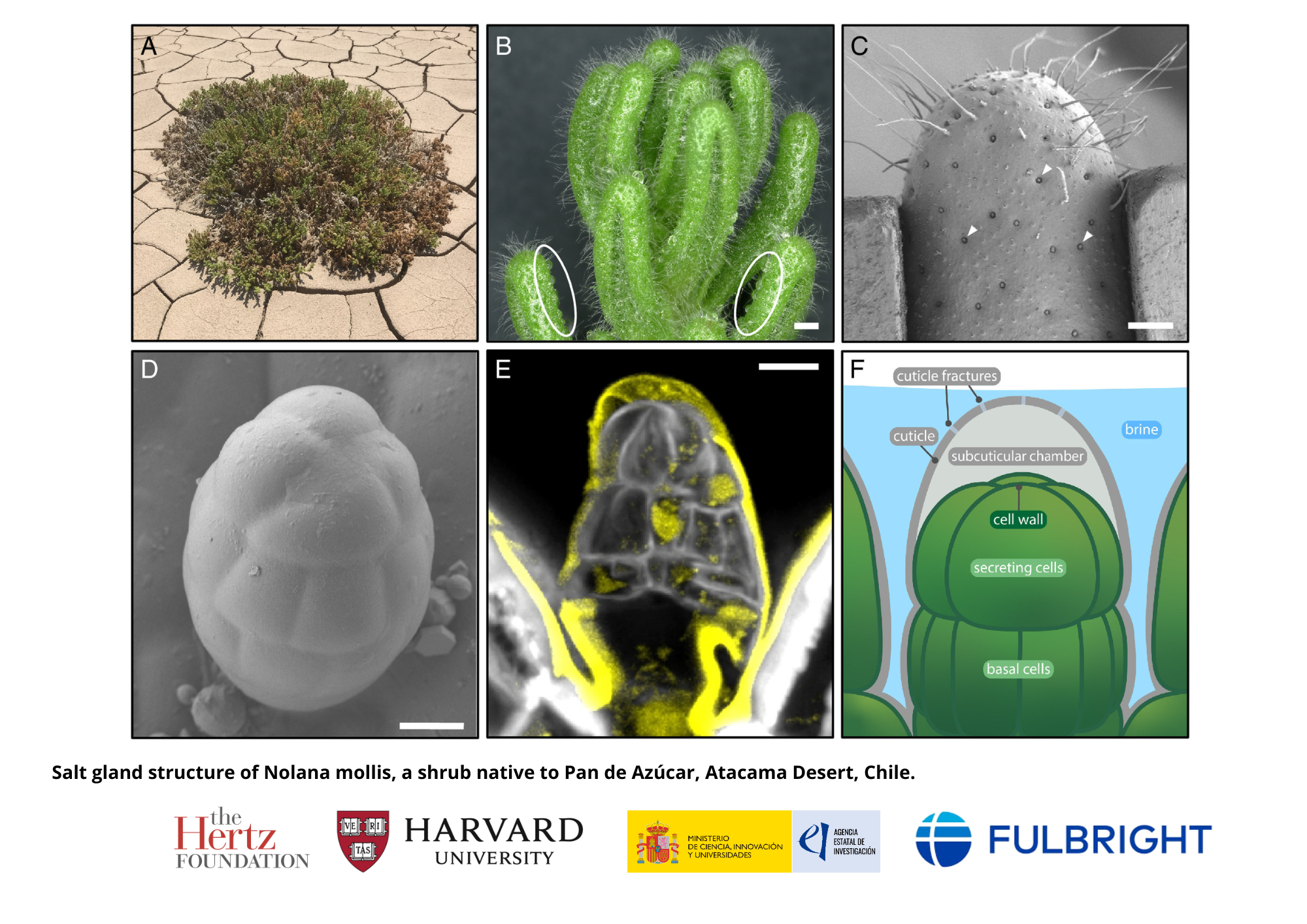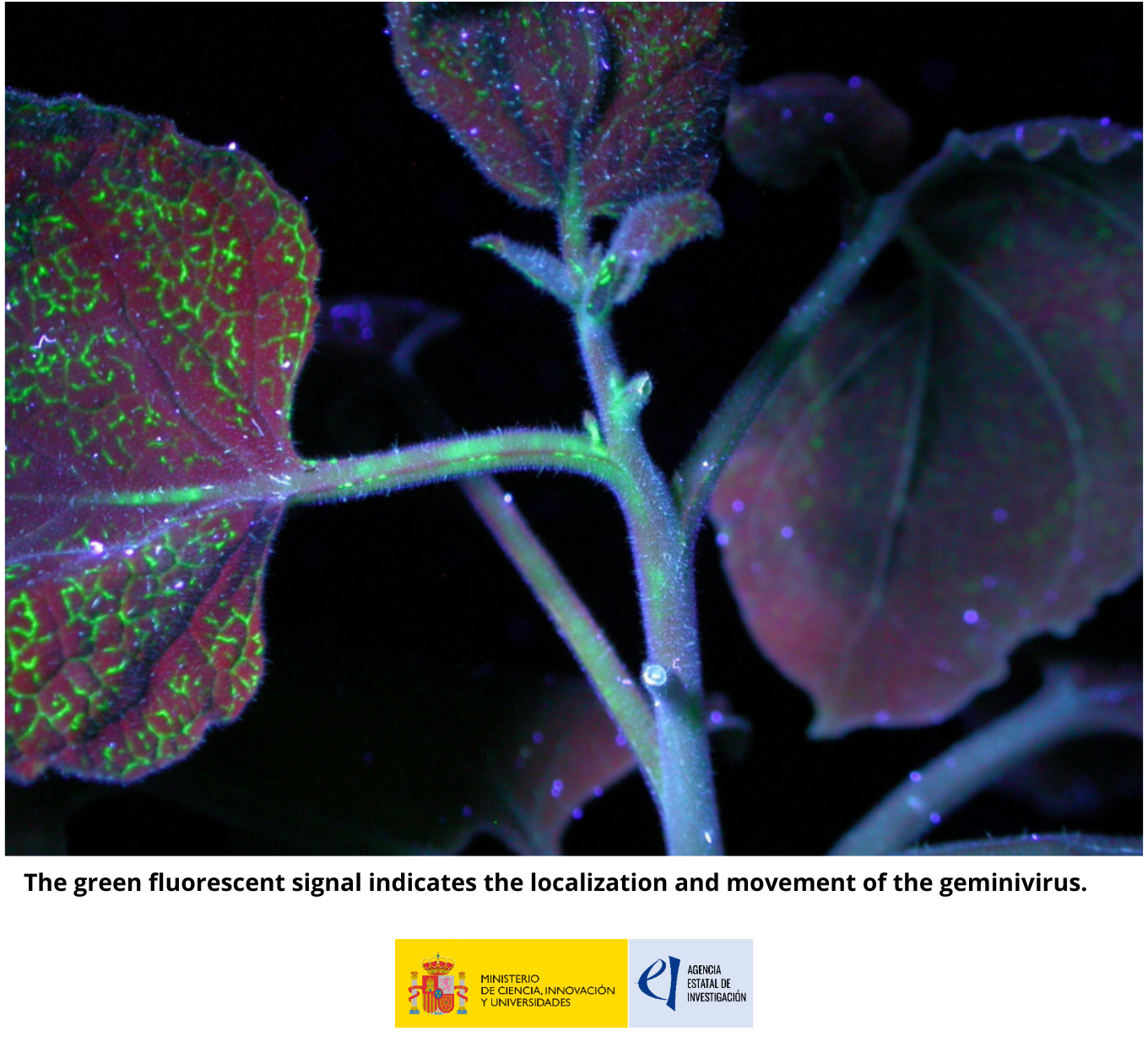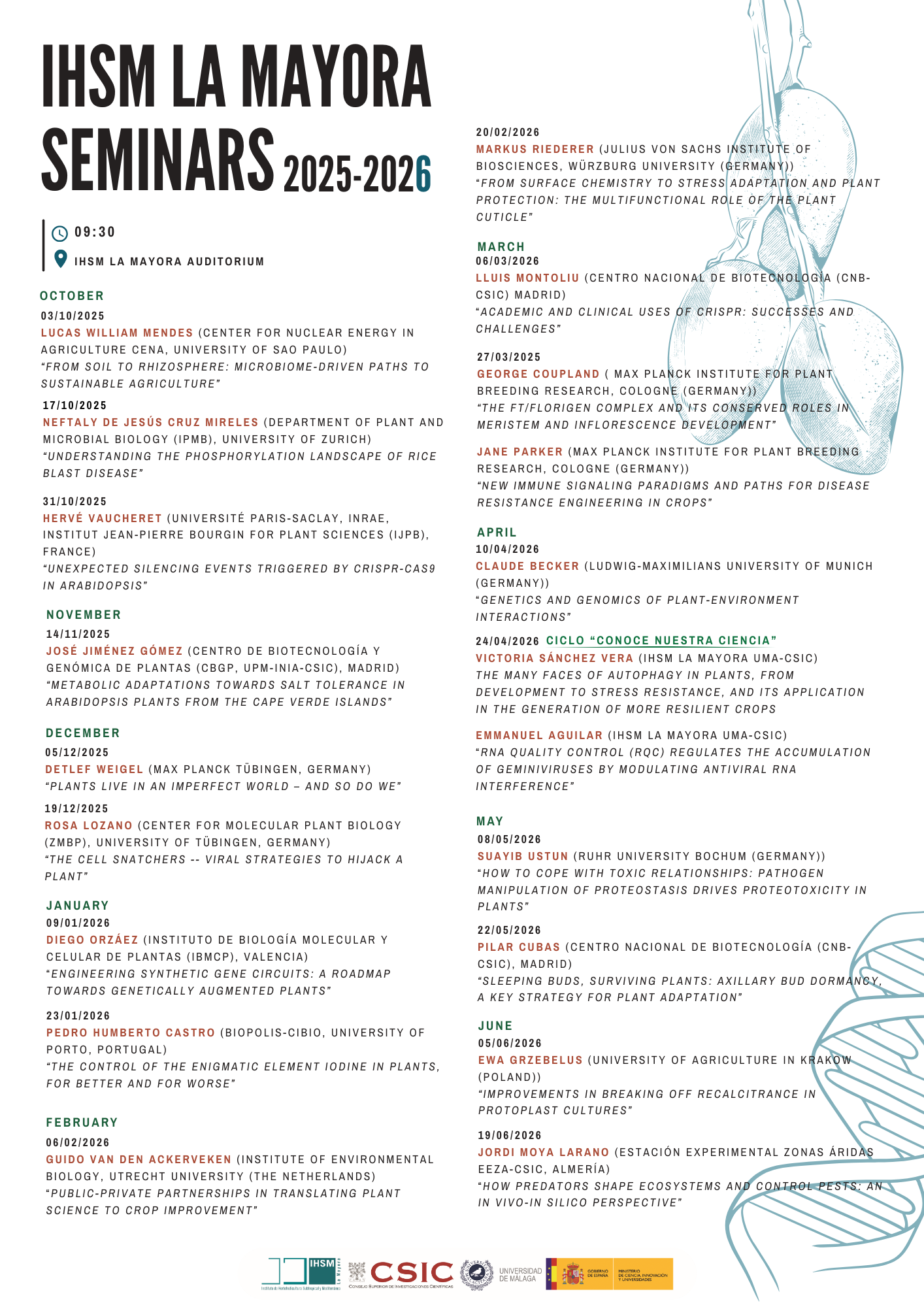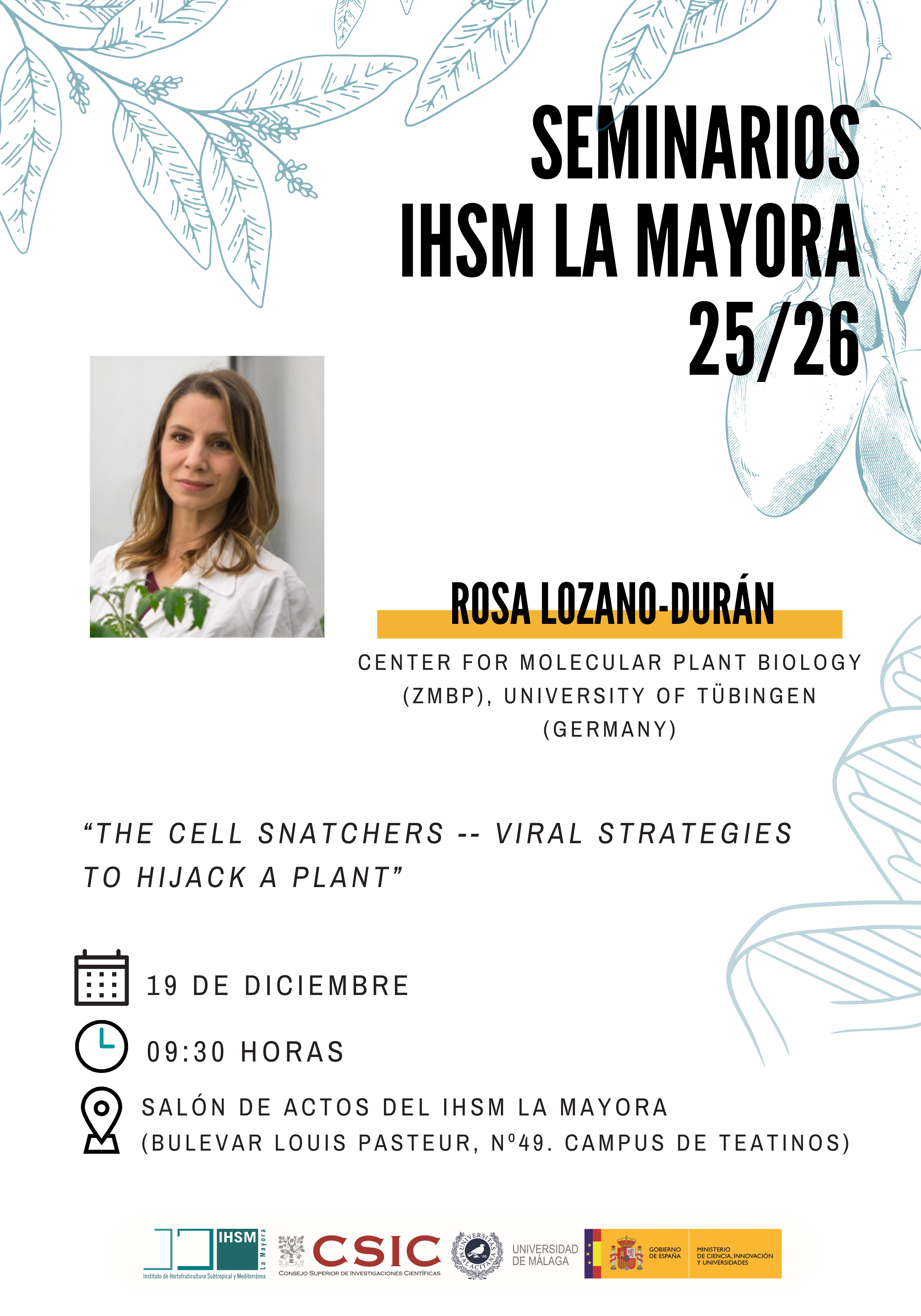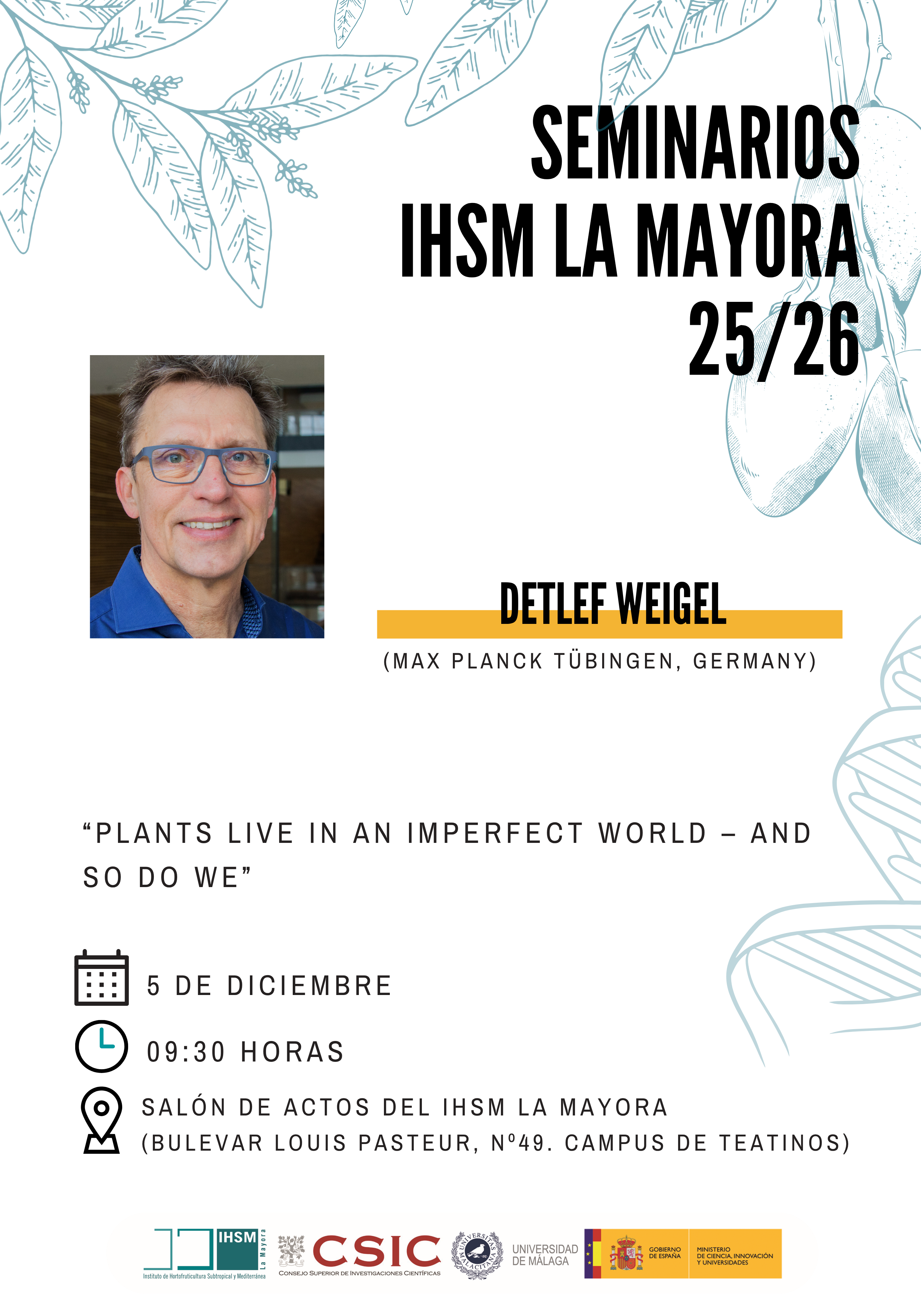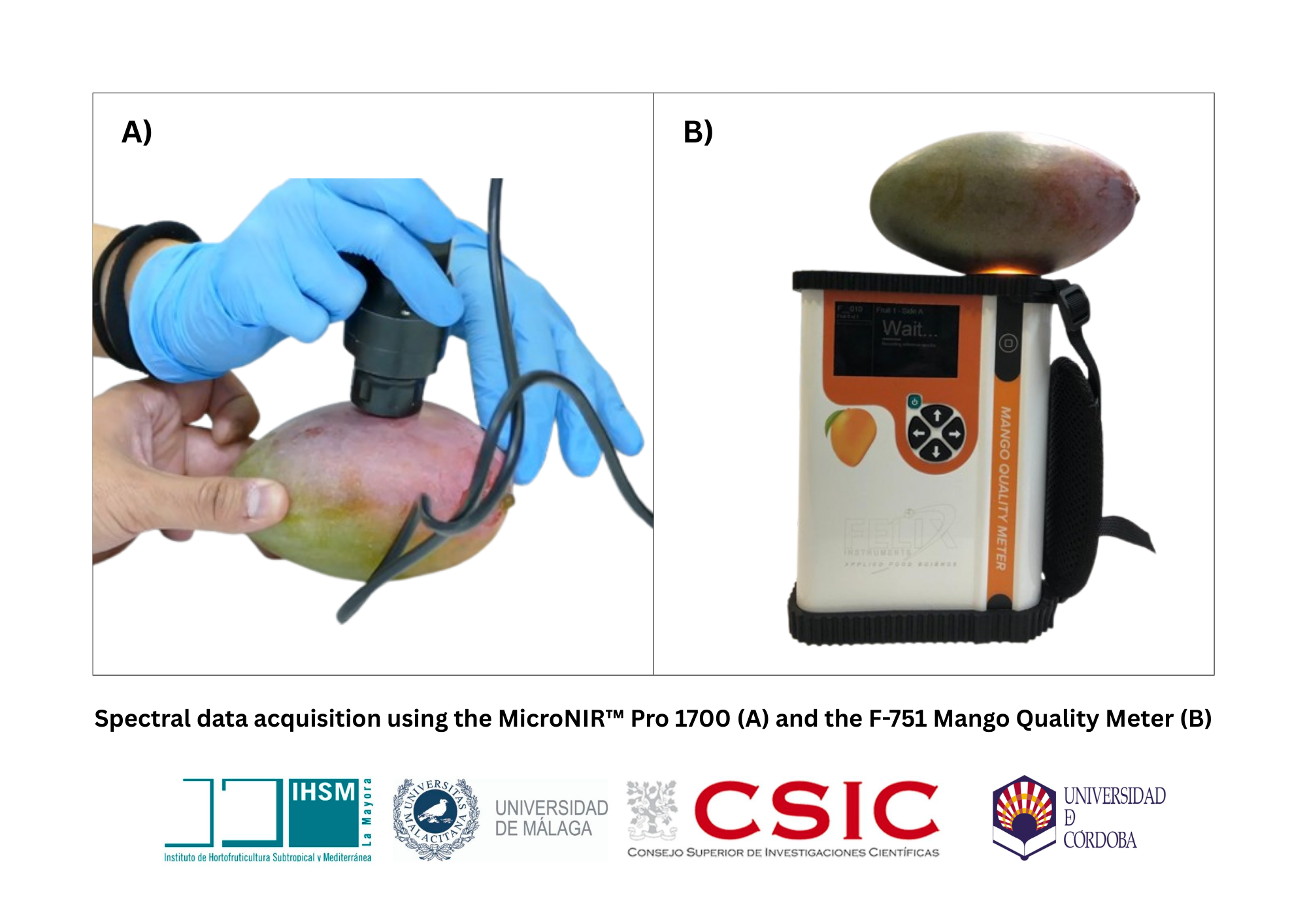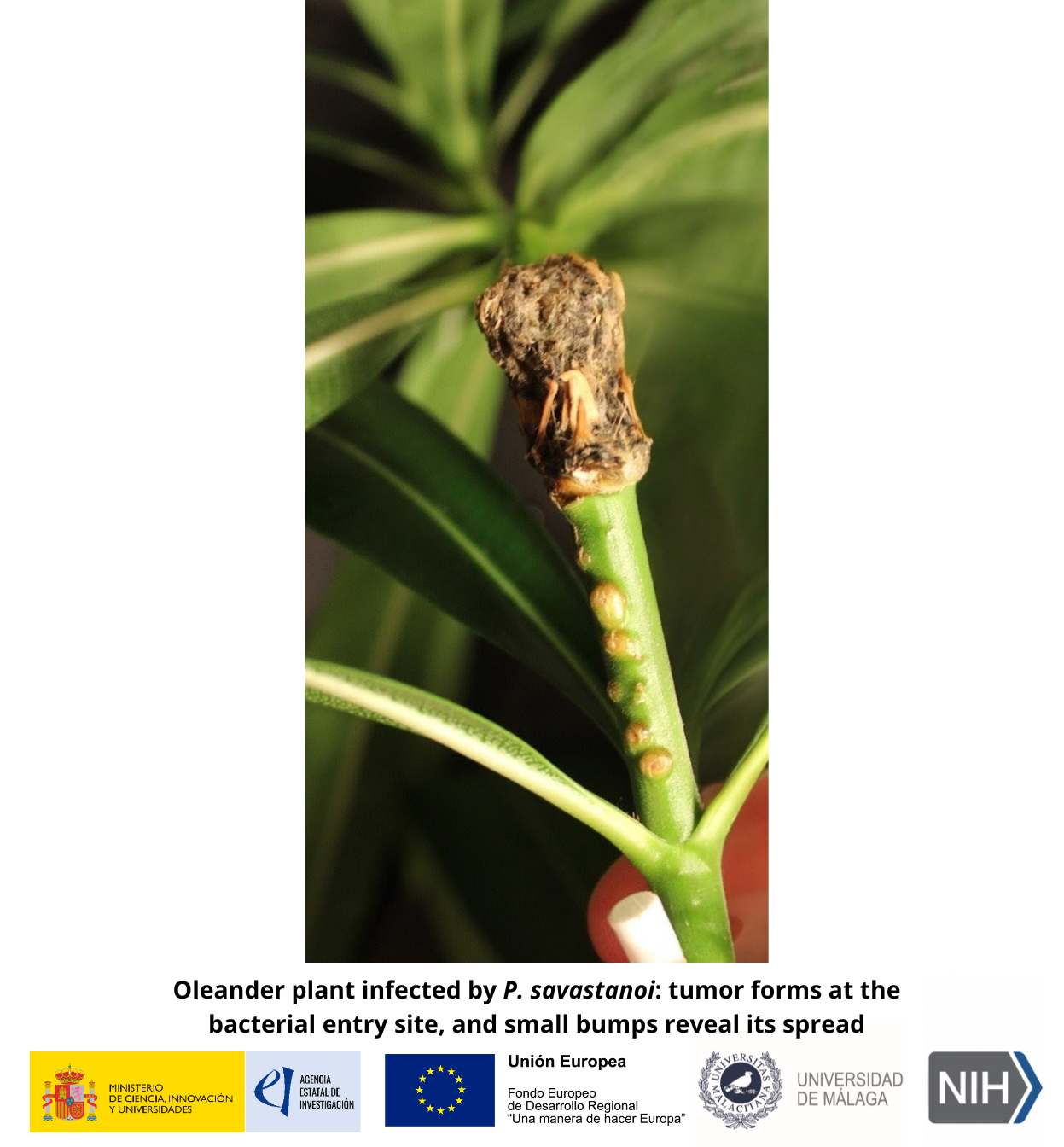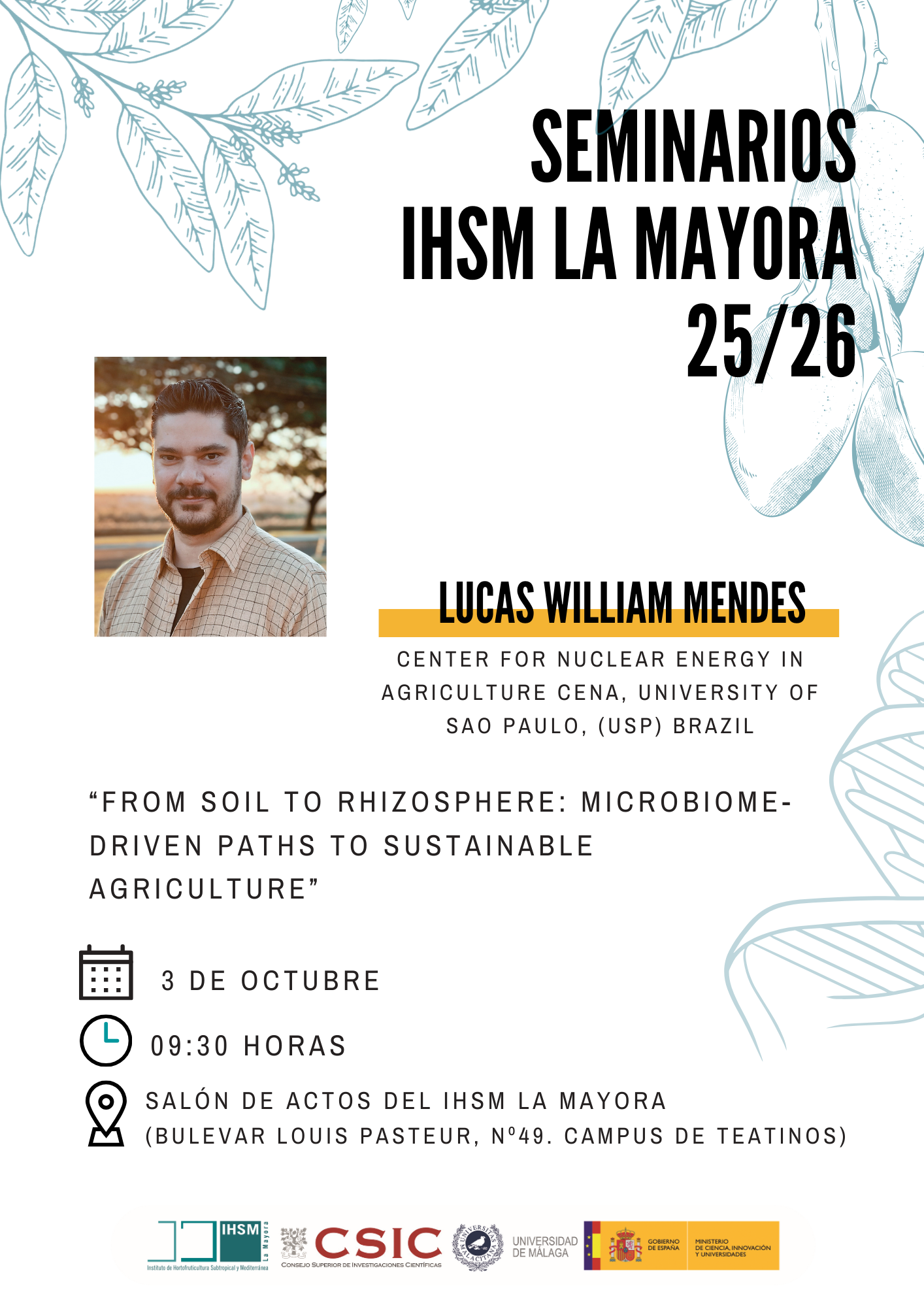
Seminarios IHSM La Mayora - Lucas William Mendes (Center for Nuclear Energy in Agriculture CENA, University of Sao Paulo, (USP) Brazil)
A major challenge of modern agriculture lies in addressing the rising global population and the increasing demand for food, fiber, and energy, all while maintaining environmental sustainability. In this context, the plant-associated microbiome, particularly the rhizosphere microbiome, has emerged as a powerful tool to enhance crop productivity and resilience. Microbiome-based strategies can be implemented across three hierarchical levels of biological adjustment: (i) Production system level – a gross-tuning of the biological component through conservation practices such as no-till farming, cover cropping, crop rotation, and reduced agrochemical use; (ii) Plant-soil interface level – a medium-tuning approach involving the application of bio-inputs, including microbial inoculants, biocontrol agents, and biofertilizers; and (iii) Rhizosphere level – a fine-tuning of the biological component through targeted engineering of the rhizosphere microbiome to enhance specific microbial functions that support plant health and productivity. Harnessing the microbiome at these three levels of biological interactions offers a strategic entry point for microbiome-driven approaches to sustainable agriculture. Taking Brazil as an example, one of the world’s leading food producers, we will explore how harnessing these interactions can help build more resilient and sustainable agricultural systems in the face of 21st-century environmental challenges.

